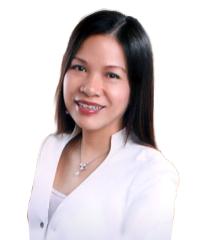Profile 心理學家

IP Miu Yin, Sarah
Clinical Psychologist
IP Miu Yin, Sarah
Clinical Psychologist
Professional Qualification
- B.Soc.Sc. in Psychology, Chinese University of Hong Kong (1994)
- M.Phil. in Clinical Psychology, Chinese University of Hong Kong (1998)
- Associate Fellow of Hong Kong Psychological Society (Registration No.: 2004-262)
- Registered Clinical Psychologist, Hong Kong Psychological Society
- Registered Counselling Psychologist, Hong Kong Psychological Society
- Associate Fellow of British Psychological Society
- Chartered Psychologist, British Psychological Society (Membership No.:190986)
- Clinical Psychologist in Accredited Register of Department of Health in Hong Kong (Reg. No. CP00069)
(The Accredited Registers Scheme for Healthcare Professions – Clinical Psychologists)
Column Writing
- OURS 寶寶心理 (Aug 2023 Onwards)
- SuperParents 兒童心理成長 (Oct 2015 – May 2023)
- Ming Pao Weekly 親子解讀 — 多元學習 (Nov 2015 – Feb 2019)
- Metro Daily 兒童心理/心理健康 (Aug 2015 – May 2016)
- Mind & Life 私房愛 (Nov 2014 – Jan 2016)
- PsycheMag/MindMag (Sep 2009 – Mar 2011)
Previous Positions
- Clinical Psychologist — Po Leung Kuk (Rehabilitation Services)
- Clinical Psychologist — Hong Kong Family Welfare Society
- Honorary Clinical Supervisor — Department of Psychology, Chinese University of Hong Kong
- Part-time Lecturer — Department of Applied Social Studies, City University of Hong Kong
Clinical Experience
- Assessment, diagnosis and treatment of psychological and psychiatric problems in children, adolescents, adults and family
- Case consultation and training for social workers, teachers, employees, etc.
- Talks and workshops for schools, companies and the community
- Clinical supervision of clinical psychology trainees

How to choose a qualified "Clinical Psychologist"?
To become a “Registered Clinical Psychologist” of the “Hong Kong Psychological Society”, one must hold a recognized Bachelor Degree in Psychology, plus a Master or Doctoral degree in Clinical Psychology. Clinical psychologists should fulfill professional requirements and qualified training, including clinical placements supervised by practicing clinical psychologists. Clinical Psychologists also need continued education in relation to the profession. (List of Private “Clinical Psychologists” Registered with “Hong Kong Psychological Society”)

What is the difference between "Clinical Psychologists" and "Psychiatrists"?
"Psychiatrists" are doctors of a medical specialty. They treat mental illnesses mostly by medication. Drugs balance brain neurotransmitters to regulate emotions, improve sleep, restore normal brain functioning, etc. "Clinical Psychologists" are a kind of psychologists instead of medical doctors. They apply psychological theories and practices to resolve problems or alleviate distress, in terms of emotions, thoughts, behaviors, environment, growth, etc.
 Book:《直升機父母》
Book:《直升機父母》